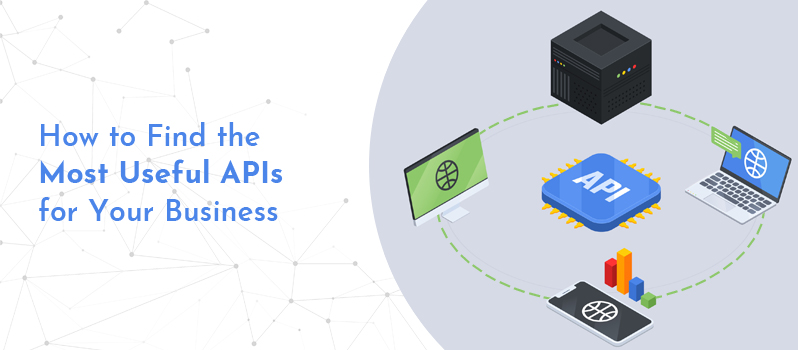When you think about what an API is, you might imagine a giant database that returns information to your program. In reality, an Useful APIs is a set of instructions that tell the computer what it needs to do in order for your programs to communicate with one another. APIs help computer programs interact with each other without having to write code from scratch, and there are tons of different APIs available for both business and personal use.
What are APIs?
APIs stand for “application programming interfaces.” These are the tools and protocols that allow software to talk to each other. APIs can be used by businesses of all sizes to connect with other platforms and services, automate tasks, and more. There are a number of ways to find APIs that can help your business. Here are four tips:
- Use search engines. The first step is to try searching for APIs using different keywords or phrases. This can help you find specific APIs that support your needs or find existing APIs that have been created by other businesses.
-
Check out developer communities and forums. Another way to find relevant APIs is to visit developer communities and forums and look for discussions about specific APIs or resources related to your business. This can help you connect with developers who can help you implement the API into your own applications.
-
Explore third-party services. Finally, consider exploring third-party services that offer a variety of API resources specifically designed for businesses. These services may offer more comprehensive offerings than those offered by official API providers, making them a better option if you need specialized features or support for a large number of applications.
-
Ask around. Ultimately, the best way to find the right API provider is to ask your peers. If you talk with other people in your industry, you can learn which providers have successfully implemented the APIs they need.
-
The Three Myths of API Management
In the large majority of cases, it is likely that commercial API providers are not to blame for any of these challenges. They provide valuable services and are doing all that they can to support their customers today and in the future. However, there is a stereotype surrounding APIs that can sometimes be blamed on developers or vendors who do not know how to use an API properly or build applications for it.
Why use APIs?
API use is growing in popularity. APIs allow you to connect to different services and share information with other businesses. They are a great way to get data, create new integrations and build relationships with partners. Here are some reasons why you should consider using APIs:
API use is growing in popularity.
API connections can help you get data from different sources.
API connections can help you create new integrations with other businesses.
API connections can help you build relationships with partners.
How do I use an API?
API stands for application programming interface. APIs allow third-party developers to develop and publish their own applications that work with specific services and platforms. When you discover an API that could be useful for your business, it’s important to understand how it works and how to use it. Here are four tips for finding the most useful APIs:
- Research the platform or service. Make sure you understand the requirements for using the API, including what programming language and tools are required.
-
Check out the documentation. Reading through the documentation will give you a better understanding of how to use the API and what parameters are needed to access it.
-
Test the API before you use it in production. It’s important to check that the API works as expected before you deploy it into your business system.
-
Ask around. There are likely other businesses that are already using the API, and they may be able to help you get started.
When to find a Useful API
API stands for Application Programming Interface. It is a set of defined procedures, methods, and functions that allow software to communicate with other software. APIs are an essential part of modern web development and can help you streamline your workflows by connecting external programs with your own code.
When Should You Use an API?
There is no one-size-fits-all answer to this question, as the decision of when to use an API will depend on the specific needs of your business. However, some factors to consider include:
How important is integration with another program?
How complex is the task at hand?
How much time do you have available?
If you are unsure whether or not an API is right for your business, it is always advisable to consult with a professional who can help evaluate your needs and recommend the best option for you.
Once you have decided that an API is warranted, there are a few things you will need to take into account. First, make sure that the platform or program you are working with offers APIs in the first place. Many platforms and programs now come pre-configured with APIs, so all you need to do is activate them
Choosing the Right API
There is no one-size-fits-all answer when it comes to choosing the right API for your business. Factors such as your business’s needs, size, and budget will all play a role in determining which APIs are the best fit. However, some tips on how to find the most useful APIs can be helpful.
- Do your research. Before choosing an API, make sure you have a clear understanding of what it can do and what you need it to do. There are many resources available online to help you learn about specific APIs, and some businesses offer dedicated support for finding and using specific APIs.
-
Consider your business’s needs. Different APIs can meet different business needs. For example, an API that lets you manage data may be more suitable for a business that deals with large volumes of data regularly. On the other hand, an API that lets you send orders to a fulfillment company may be more suited for a small business that doesn’t process a lot of data on its own. Determine which needs the API can fill and choose an option based on that information.
-
Consider your budget. Not all APIs are free, and some are more expensive than others. Before you invest in an API, check to see its cost and whether it fits within your budget.
-
Decide what kind of data you want to exchange or manage. Useful APIs that work with data from outside sources allows businesses to access information from different sources at the same time. For example, a small business may want to use an API that lets it send orders from its online store to a fulfillment company’s website.
Conclusion
API stands for “Application Programming Interface.” Useful APIs are a way for businesses to connect with their customers and partners in a more direct and efficient manner. By using an API, businesses can create applications that interact directly with their backend systems, increasing efficiency and lowering costs. When searching for the right API, it is important to consider not only the features offered but also the company’s reputation and customer base. After all, you wouldn’t want to use an unreliable or untested API in your business operations would you?

